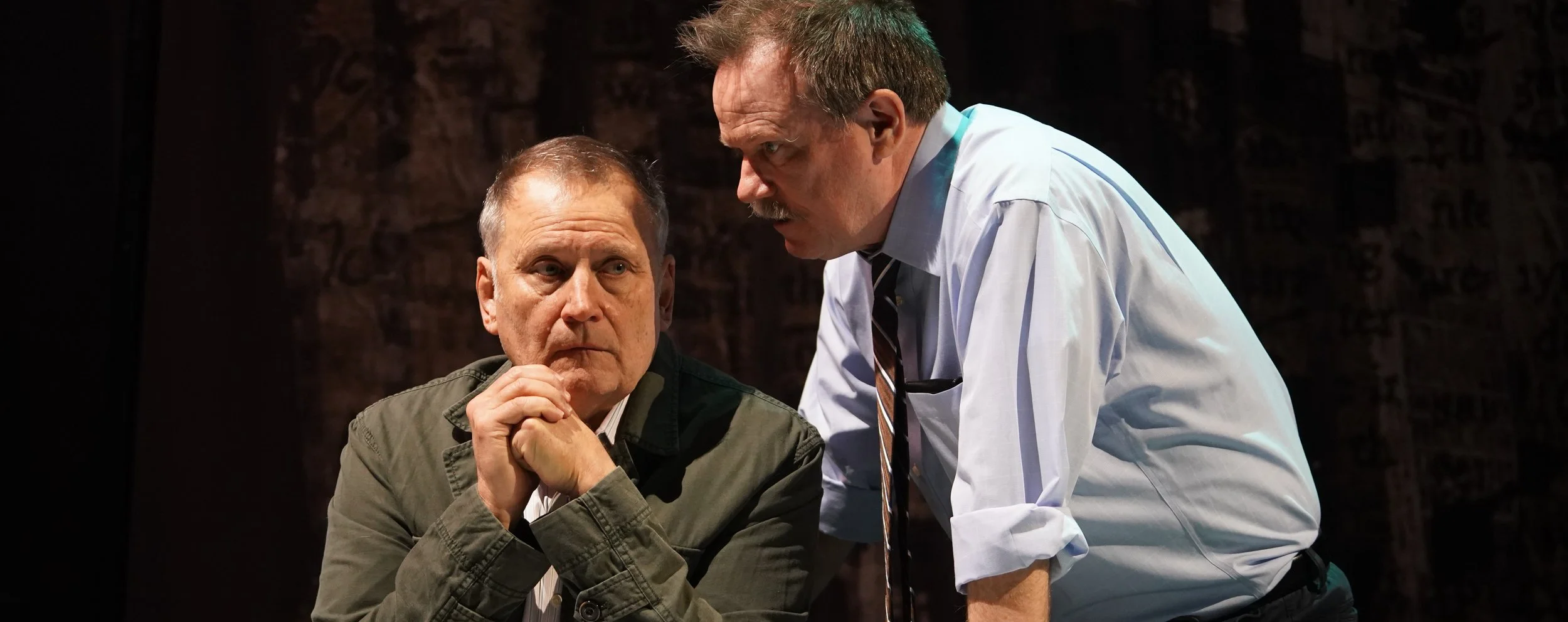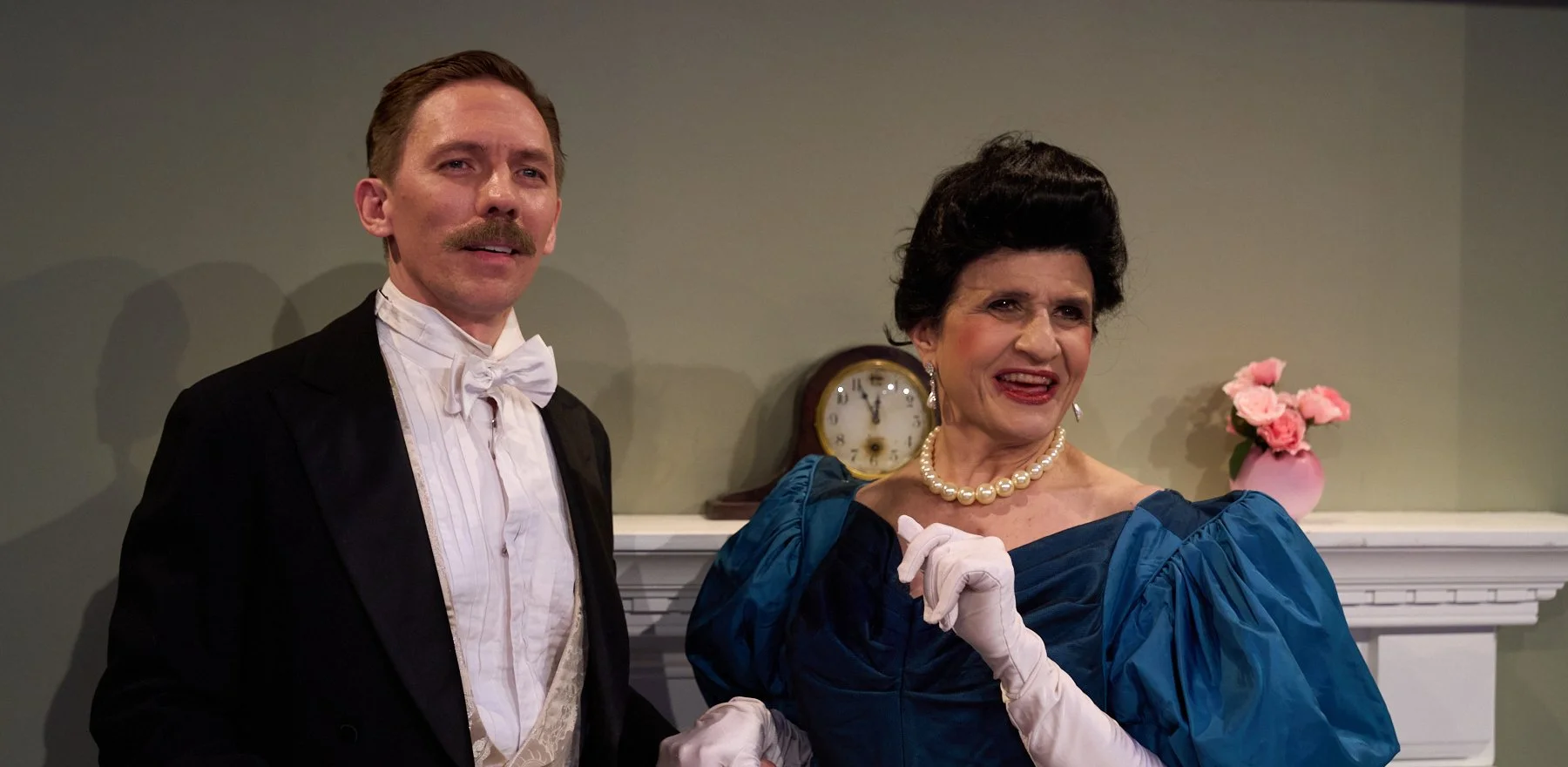Is there any way to review a show called Emojiland besides 🆕🎶📢🎨⚡? That is to say, this new musical is loud and colorful and has lots of energy, but some parts work better than others. (Hmm, there doesn’t seem to be an emoji for that last thought.)
Hold On to Your Butts, directed by Kristin McCarthy Parker, proves that epic spectacle can be conjured from little more than bodies, sound effects, and boundless imagination, as two actors and a sound-effects artist recreate Jurassic Park shot for shot, live onstage. The result is an exuberant collision of physical comedy, sound, and affectionate parody—a love letter to both movies and theater.

Not Nobody, written by Brian Dykstra, is a play about ethics and the legal system. Under the direction of Margaret Perry, the work centers on McAlester Daly (Dykstra himself), a former ethics professor. One evening, he is out walking when a couple of cops—Officer Ricketts (Sheffield Chastain, who deftly plays a wide range of characters) and Officer Chavana (Kathiamarice Lopez, who brings a crispness to every role she plays)—stop him. He’s in a neighborhood where a middle-aged white guy typically wouldn’t be, and the cops find that odd.

“Behind every great fortune lies a great crime” is a quotation attributed to French novelist Honoré de Balzac, but it applies directly to the plot of Oscar Wilde’s An Ideal Husband (1895). Written close to Wilde’s peak—it opened just a month before The Importance of Being Earnest—Husband fizzes with epigrams and uses heightened language to expose hypocrisy. The Storm Theatre is brave to tackle the work, packed both with melodrama and wit, but to succeed, as Sir Peter Hall did with his Broadway production 30 years ago, requires skills and experience that it can’t altogether muster.

In I Wish My Life Were Like a Musical, written by Alexander S. Bermange and directed by Eamon Foley, four talented performers share their love of musicals—even though their show has just closed unexpectedly. The plucky quartet spends the ensuing 75 minutes delightfully recounting their personal reasons for loving theater while spoofing some of the most popular musicals of all time. Their commitment to the genre is infectious. And even though their love is temporarily unrequited, they wave the banner of devotion like Jean Valjean from Les Misérables, one of the many shows parodied.

In his solo show Ai Yah Goy Vey!, Richard Chang celebrates multicultural New York through the fictional tale of a Chinese man’s borough-hopping search for the father he has never met. But his picaresque is peppered with questionable jokes and portrayals, and, despite an impressive array of costumes, props and video backdrops, the production has an amateurish air to it.



